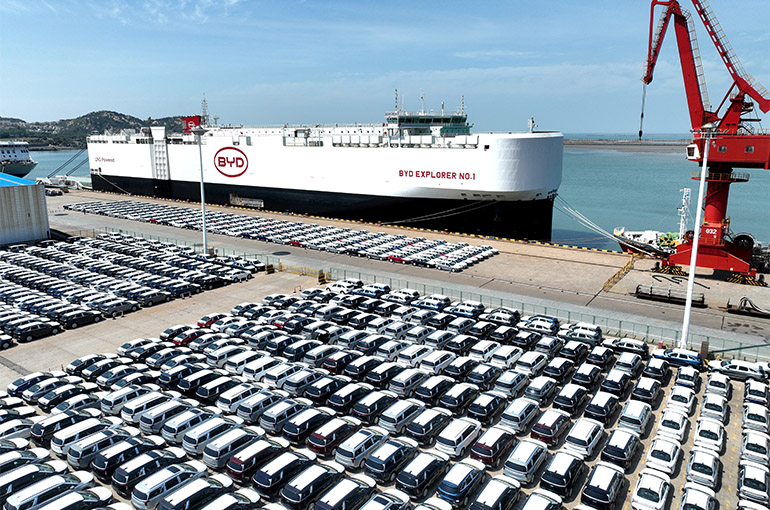 Türkiye Extends Additional 40% Import Tariff to All Chinese Cars
Türkiye Extends Additional 40% Import Tariff to All Chinese Cars(Yicai) June 11 -- Türkiye has widened the scope of Chinese auto imports facing an additional 40 percent tariff, aiming to boost the market share of domestically made cars and ease the country’s current account deficit.
Türkiye’s trade ministry announced on June 8 that the additional 40 percent tariff on Chinese electric vehicle imports introduced last year was also applied to Chinese fuel-powered autos from June 7, with a minimum tariff of USD7,000 per car.
Türkiye announced the additional levy on Chinese EVs in March last year, raising the total tariff to 50 percent. The latest change will impact BYD, Chery Automobile, Hongqi Auto, Leapmotor, Seres, and other Chinese car firms, according to data from Türkiye's official vehicle association.
The move will completely negate the price advantage enjoyed by Chinese carmakers, and those with low volume sales in Türkiye now face losing money there, an analyst told Yicai.
Raising tariffs on Chinese car imports can help Türkiye increase fiscal revenue amid a large trade deficit and economic downturn, according to Cui Dongshu, secretary-general of the China Passenger Car Association.
Türkiye is also promoting the development of its own EV industry and needs to raise tariffs to protect domestic producers, as Chinese carmakers are very competitive, Cui added.
Cui said that after last year’s tariff hike, Chinese auto producers still did very well in Türkiye. The additional tariffs will impact Chinese firms by increasing cost pressures, hampering development, and slowing growth, but due to the large trade deficit and the underdeveloped local auto industry, they should be able to overcome the challenges, he said.
Türkiye has a weak local auto industry, with about 70 percent of vehicles exported to international markets. It is Europe’s largest car exporter after the United Kingdom.
Last year, Türkiye’s light vehicle sales reached 1.23 million units, with Chinese brands accounting for 42,300, of which Chery was 41,500. Türkiye’s auto sales rose 6 percent to 472,000 in the five months ended May 31 from a year earlier, with 28,600 Chinese vehicles taking a 6.1 percent market share.
Editor: Martin Kadiev